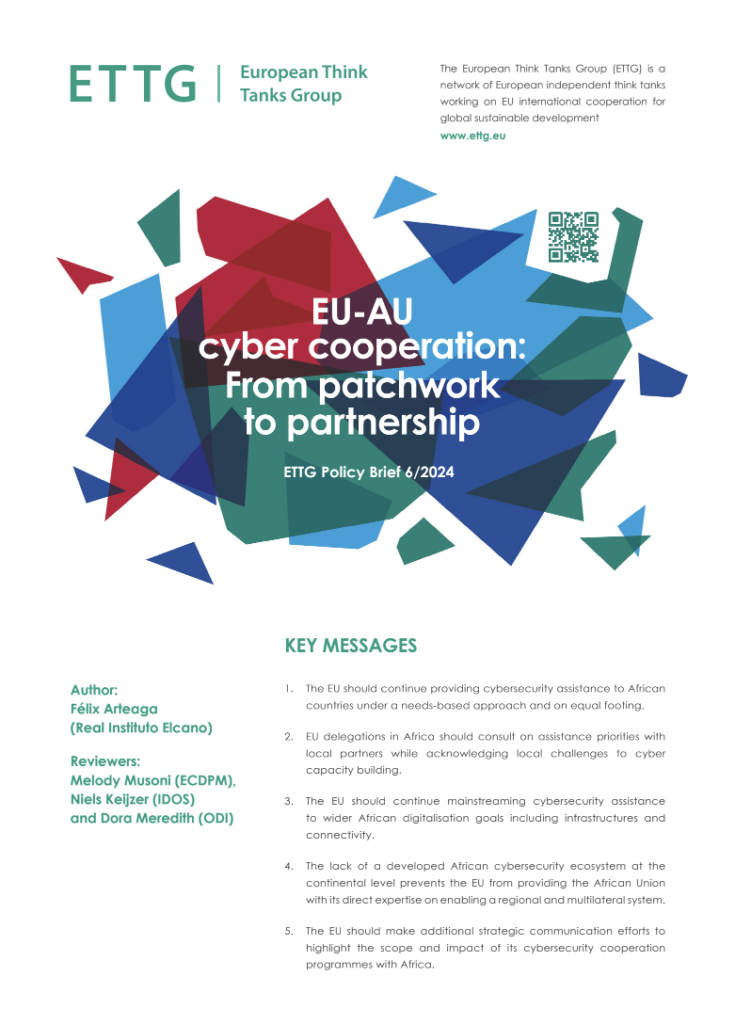The ETTG policy brief by Félix Arteaga (Real Instituto Elcano) reviewed by Melody Musoni (ECDPM), Niels Keijzer (IDOS) and Dora Meredith (ODI) examines how to strengthen cybersecurity cooperation between the European Union and African Union, moving beyond fragmented assistance toward a more strategic partnership approach.
A better coordinated and partnership-based approach is needed to achieve lasting impact.
The policy brief outlines five core recommendations for enhancing EU-AU cyber cooperation:
1. Needs-Based Assistance: The EU should maintain its cybersecurity support to African countries while ensuring assistance is tailored to local needs and delivered on equal footing. This approach helps build genuine partnership rather than dependency.
2. Local Consultation: EU delegations across Africa need to actively engage with local partners to identify assistance priorities, while remaining mindful of the specific challenges these countries face in building cyber capacity.
3. Integration with Digital Goals: Rather than treating cybersecurity in isolation, EU assistance should be mainstreamed into broader African digitalization objectives, particularly around infrastructure development and improving connectivity.
4. Building Regional Capacity: The current lack of a comprehensive African cybersecurity ecosystem at the continental level limits the EU’s ability to share its expertise in developing regional frameworks. Supporting the development of this ecosystem should be a priority.
5. Enhanced Communication: The EU needs to strengthen its strategic communications around existing cybersecurity cooperation programs with Africa, better highlighting their scope and impact to both European and African stakeholders.





